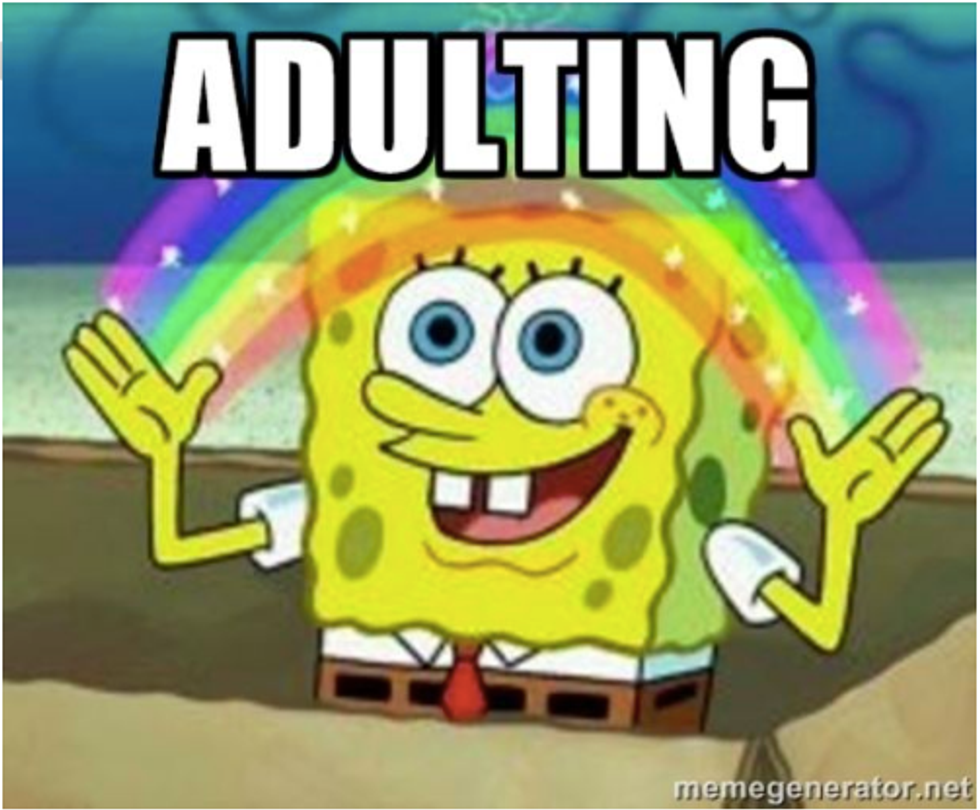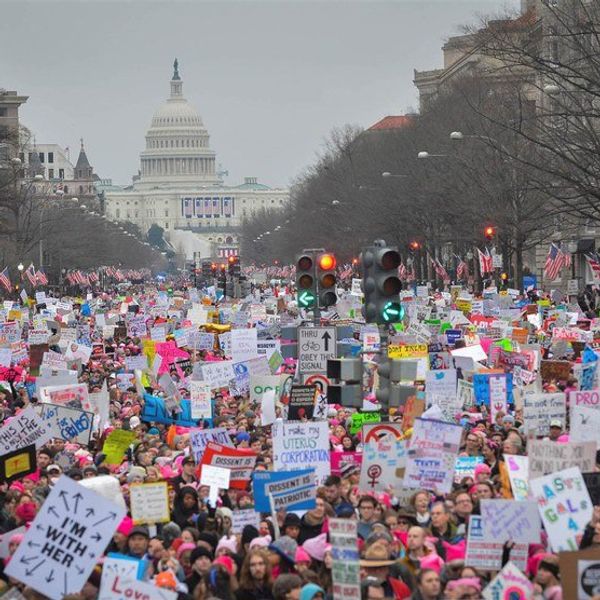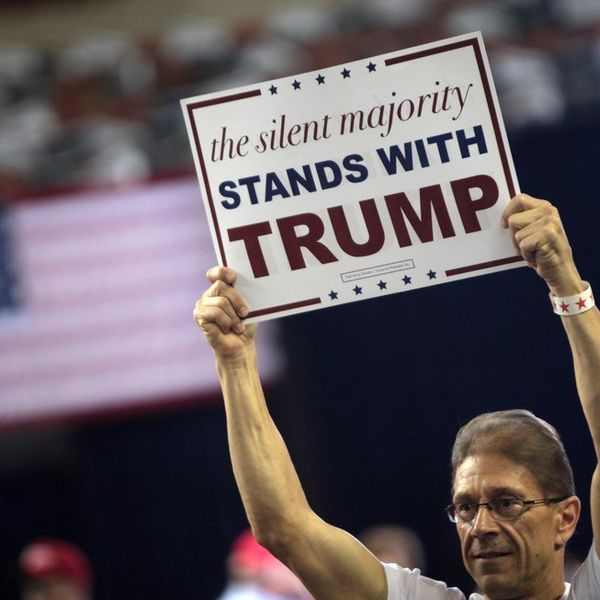When I turned 18 last year I was overjoyed at finally being "an adult", despite having engaged in almost every activity only granted to those over the age of 21 prior to that crucial step. I could not wait to get on the road without my mother freaking out by my side. I was eager to attend university. I dreaded making my own dentist appointments and working a real job but reveled at the thought of having my own bank account and filling it with my own paychecks. However, I overlooked the most significant #adulting moment: voting. Allow me to take you back in time, as I so often do:It is July of 1972 and a politicized young man decides to exercise one of the most important rights in our country. However, when he tries to have his voice heard, he is denied that right. That young man was the former White House Press Secretary Mike McCurry for the Clinton Administration. McCurry's case was not a special one. Though this might sound shocking to us today, this was the 1970s and the voting age had just recently been lowered from 21 to 18 years old. This means that at the age of 18, young adults were told to grow up, behave more responsibly, and fight for their country. All the while, they were denied the right to share their opinion on the political scene. Thankfully, for you and I, this clear double standard was somewhat eradicated 45 years ago by the ratification of the 26th amendment. That being said, we've taken this victory for granted.
In the years since March 10th, 1971, despite a grueling fight by the youth of the '70s to secure this right for the youth of today, young voters have decreasingly hit the polls. From what my fellow millennials, classmates, and friends tell me, this is due to a mixture of their lack of political interest or knowledge, a mistrust in the system, and "my vote doesn't even matter, bro." Except that it does, bro! Here's why.
Today, millennials, those of us who are 18 to 35 years old, are undeniably growing as a political force. A recent Pew Research Center study found that with 69.2 million of us at voting age, we are currently nearing the 69.7 million baby boomer electorate, you know that "Me Generation." We currently compete to constitute roughly 31% of the voting bloc. According to fellow Millennial and Rock The Vote president Ashley Spillane, our generation is "the largest and most diverse in the United States [and] the best-educated group of young adults in American history." As the Baby Boomer generation declines, we are increasingly gaining the "power to become the most influential voting bloc" in America. This means that your votes do matter! No matter your party affiliation, you have the chance to make an impact both at the local and national level. In addition to that, 2016 marks the first time we are all eligible to vote.
Despite this optimistic potential, we have the lowest voter turnout of all generations (darn you baby boomers!), and this has the detrimental effect of sending us into a vicious circle of "I don't vote because politicians don't care about me" and "politicians don't bother with millennials because they don't care about politics." Ironically, this lack of youth interest and participation in politics all started with the ratification of the 26th amendment. Lowering the voting age did surprisingly little to get young people involved in politics. It's sort of like fighting with your sibling to be the first to use the shower every morning, all the while knowing that laziness will ensue and you'll just end up running out the door reeking of Axe's Dark Temptation (what, just me?). However, laziness is more of a stereotype than an actual reason for why we tend to not show up at the polls for presidential elections, let alone local elections.
As previously stated, many millennials distrust government institutions. Just last year, Harvard's Institute Of Politics found that only 9% of young people had strong confidence that our justice system could “fairly judge people without bias for race and ethnicity." Furthermore, only 25% and 17% of us trust the federal government and Congress, respectively. This goes to show that the issue lies also, if not more, in the hands of these institutions. Understandably, we cannot be asked to participate in a political system that is currently doing us more harm than good. It has been "theorized that people who feel vulnerable or disadvantaged for whatever reason find it riskier to trust because they’re less well-fortified to deal with the consequences of misplaced trust." For us millennials this makes sense because, in addition to being the most diverse and educated generation, we are also the first of the modern era to experience "higher levels of student loan debt, poverty and unemployment, and lower levels of wealth and personal income" than the two preceding generations in this same stage of their lives (baby boomers at it again!). We have inherited an atrocious economy.
Lastly, the lack of interest in politics that some of us may have is due to a lack of exposure to its significance in our lives. I, for instance, had essentially sworn off politics. I remember coming back to the United States in the midst of a historical moment, and despite the potential change that Barack Obama's election could bring to the African-American community, I never really found it necessary to show interest in politics. That is, until recently; I beginning being interested in politics because I realized that it is the only way I can influence the system in a positive way for the people I feel are oppressed in more ways than one. The issue really stems from being taught politics on a historical and abstract level. AP Government and Politics, for instance, teaches about "constitutional underpinnings, civil liberties and civil rights, political culture and socialization, citizen participation and influence, political institutions and policy making." Such a course sounds like it is very adamant on involving students in the political sphere and make them aware of its significance. However, the way most teachers teach it is by explaining how the system was created and the ideas behind the initial form of government. Rare are those teachers who, like Ashley Gray, teach American Government in relation to our own environment. Gray is an American Government teacher at Sequoia High School in Redwood City, California, who strives to get his students involved in politics at a concrete level. One way he recently accomplished this was by asking his students to research the propositions on the 2016 ballot in California and their potential impacts. This type of activity can serve as an example of how we can individually get involved in politics. We should be aware of how we are affected by laws made by politicians and seek to have a say in those decisions.
Fellow Millennials, we may not all be Kylie-Jenner-turning-18 type of adults, but we must realize that voting is a fundamental right in our society. Not exercising this right would not only be a slap in the face to the 70s youth who fought hard for us to have it, but it would also be shooting ourselves in the foot. Your vote does matter and it does have an impact. All it takes for you to see the influence you have is to cast that ballot come November 8th. At the risk of being cliché: now, more than ever, is our time! It is our time to show the narcissistic baby boomers that we do in fact care about the state of our country and are going to do all that we can to change it.
























